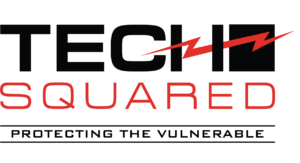It’s almost impossible to discuss cybersecurity measures without mentioning antivirus software. This type of program is designed to identify, isolate, and eliminate computer viruses, although newer versions can also target worms, rootkits, ransomware, and other types of malware.
When choosing antivirus software for your business, it’s best to remember that these programs are not created equal. Some of them are designed for specific threats or types of machines. In any case, you must select one that not only offers the features you need, but will also function optimally on your office computers.
How will I know if an antivirus software program will work optimally for my machines?
These are the four factors you need to consider if you want an antivirus solution that will perform smoothly even on lower-end PCs:
1. Cloud server
Some antivirus suites use your computer’s storage and other resources to do their work. This can slow down your machine, especially as the software updates or scans for malware. To avoid this issue, some antivirus solutions take advantage of the cloud.
Cloud antivirus software installs a small client that connects to web-based servers. All of the software’s workload, including analysis and determination of appropriate countermeasures, are performed in these servers. This allows the antivirus program to function properly without bogging down your computer.
The downside to this type of software is its overreliance on an internet connection. Offline, the client can only scan but not interpret, making it of little use to your network.
2. Detection type
Traditional antivirus programs employ signature-based detection to find malware in your system. This means the software checks the files on your network using a database of known threats. If a file matches a signature in the database, then it is identified as a threat and isolated or deleted accordingly.
Signature-based detection has several problems, though. First, any malware that’s not on the list will slip past the software’s attention. Second, although the database of signatures is regularly updated to account for the latest cyberthreats, this database is stored on your computer, using up computing power and slowing down your PC.
More recent antivirus programs employ behavior-based detection, which means threats are flagged the moment they exhibit potentially dangerous behavior. If a program were to try to disable security controls or install malware, for example, then it would be forcibly stopped and removed. Behavior-based detection also does not require a sizable database, making it less likely to slow down your PC.
3. RAM usage
Your computer uses random access memory (RAM) to temporarily store data you are currently working on. All running applications use up RAM. The more applications are currently in use, the less available RAM your computer has and the slower it becomes. Older computer models typically have less RAM than newer ones, which makes them more likely to lose speed when running heavy programs.

Different programs use up varying amounts of memory. Before you buy antivirus software, look for how much RAM it uses up or inquire on the matter with your vendor.
You can also check how much memory your current antivirus software is using. If you’re using a PC, open the Task Manager by right-clicking on your taskbar and selecting Task Manager. Then, go to the Processes tab. In the Memory column, you will find the programs that are currently running and how much memory they’re using.
If you’re on a Mac, go to the Finder, located in the dock at the bottom of your screen. Select Applications on the left sidebar and click on Utilities. Look for Activity Monitor and double-click on it. Click on Memory and go to the bottom of the window. Under Memory Used, you will find how much RAM is being used and where it is allocated.
4. Installation process
Installing an antivirus suite with the right extra features can do wonders for your cybersecurity, but be careful not to go overboard. Some programs are too heavy with add-ons that they take hours — even days — just to finish the download and installation processes. This can be taxing on your computer’s speed.
Strive for a balance between functionality and practicality. If installation takes too long, the software is likely incorporating too many extra features that your machine won’t be able to run properly anyway.
Using the right antivirus software can do so much to bolster your network security. Tech Squared can help you find a solution that matches your needs, budget, and intended outcomes. Our experts can also help in integrating it into your infrastructure to ensure that it runs smoothly and seamlessly with your current system.
Download this free eBook today to discover the other ways we can empower your company.
More Than Just Tech Support
Tech Squared services and solutions Reduce Stress + Add Value to your company.


